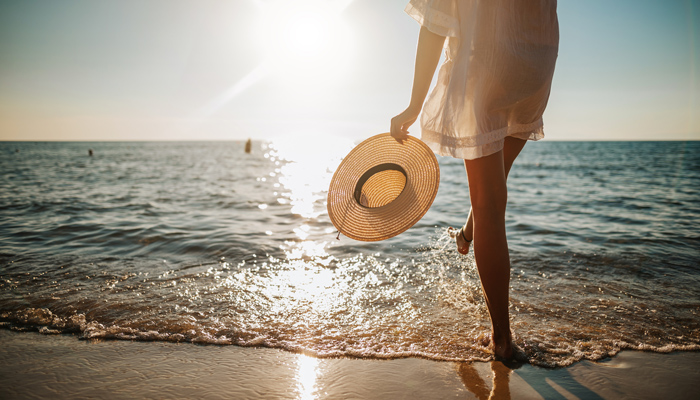How to Take a Holiday Home Inventory
If you rent out your holiday home to guests, or are thinking of doing so, having a good and thorough holiday home inventory is really important. It means you can make sure your property has everything holidaymakers need, and track the condition of furniture and items between rentals and over time.
Why do I need an inventory for my holiday home?
- To help you manage your property contents and maintenance when renting out the property. Because of the turnover of guests, there’s likely to be more wear and tear and even damage to your contents, fixtures and fittings in a let holiday home. So, having an inventory is a way of keeping on top of it.
- When it comes to maintenance, don’t forget that your insurance won’t cover you in the event of damage due to poor maintenance. An inventory means you can catch issues early on and get them fixed before they become potentially expensive problems. You can also make sure your guests stay comfortable - and hopefully more likely to return next year.
- Even if you don’t rent out your holiday home, it is beneficial to have an inventory checklist. Not only will it make you more aware of your property/possessions (and its state of condition), but it may help to speed up the process should you need to make an insurance claim.
How to create an inventory checklist
Although a list of contents is useful, an effective inventory is more than just this. It should include notes and, where possible, supporting photographs and other documentation. Follow this step-by-step guide on how to create one;
- List the items you want to keep track of, ideally kept digitally on a spreadsheet e.g. a television set. If there are multiple items, make a note of the number of each e.g. Set of 6 knives and forks
- Write a short description of the item and try to be as specific as possible e.g. <Brand> Dragon 24-piece stainless steel cutlery set
- Record where and when it was purchased and the value, keeping any receipts and warranty documents.
- Record the condition of the property as well, taking photos where possible e.g. scuffing on entrance hallway wall. Retain any invoices for maintenance work carried out. These things can also be scanned in and kept digitally.
- Where you are renting the property, it is worth keeping a log in your inventory too. Create another column that corresponds to your guests’ stay. Notes can be taken on various things that have an impact on the amount of wear and tear to be expected. Examples are, the length of stay, number of guests and any other special circumstances. You should also keep notes on the condition after each group of guests have left. This can be done via a short description, as well as photographs that can be stored digitally. The latter may only be necessary if there is visible damage detected.
Optional
- You may also wish to include statements where damage or removal of items has occurred and whether or not you would like to pursue further action. In some cases, it may be down to wear and tear, but other damage may be covered by Airbnb or your rental company policy. It could be taken out of your guests’ deposit (if one has been taken) or it may require you to claim on your insurance.
- Record all costs associated with repairing any damage. This may include the receipts of, cleaning fees, new items purchased, transport costs, etc. In extreme cases, it could include insurance documents and/or legal fees incurred. Again, these things should be scanned in and kept digitally where possible.
What should I think about in the living area of my holiday home?
Make sure you’ve got enough seats in the living room round a table for the maximum number of guests you’ve got bedroom space for. You can consider a sofa bed to extend the number of guests who can stay and take on bigger parties. Just make sure your furniture is easy to clean in case of accidents or spillages – removable covers are ideal.
Include coasters to protect tables and keep fixtures and fittings as neutral as possible, so it’s easy to re-paint and replace. Secure larger items of furniture like bookcases to the walls.
Most holidaymakers will expect a television, DVD player, and decent WiFi. It’s also useful to include a Welcome Pack with instructions for using the heating and appliances, waste and recycling, emergency numbers, and local attractions.
Make sure your smoke alarms and carbon monoxide detectors are up to date and working.
Finally, wherever your guest enter a property make sure you’ve got coat hooks, a welcome mat and shoe storage to help encourage guests not to trample mud over your carpets.
What should I think about in a holiday home kitchen?
It’s important to make it easy for guests to self-cater. Invest in plain crockery and glassware that can be easily replaced when something gets chipped or smashed. Don’t forget the little things – like a tin opener, corkscrew, wooden spoons, sharp knives, and heat mats to protect your surfaces. Create a full list of everything so you can check it off between lets and replace anything that’s missing or broken.
Try and make cleaning as easy as possible with a hoover, mop, dustpan and brush, cloths, and basic cleaning supplies to hand (kept away from the reach of children), plus a decent iron, ironing board, washing basket and clothes horse to dry clothes.
Invest in decent but inexpensive white goods – they will get more wear and tear than in an ordinary home. Make sure everything is PAT (Portable Appliance Testing) tested, and that all your gas appliances are regularly serviced.
What should I think about in a holiday home bathroom?
Make sure you include non-slip bathmats, and get a limiter set on the temperature of your hot taps.
Provide light towels, as these are easy to launder and bleach if necessary. If you’re by a beach ask guests to bring their own beach towels!
It’s also a good idea to have a basic first aid kit for minor injuries.
What should I think about in holiday home bedrooms?
Again, invest in light coloured bedding that’s easy to clean, bleach, and swap out if necessary. Fitted sheets are easier to handle and quicker to change for your cleaning service. If you’re using a laundry service, go for button duvets as the plastic poppers will warp in tumble dryers. Make sure you use pillow and mattress protectors.
Include good black-out curtains or blinds, mirrors, lamps, and don’t forget smaller details like a hairdryer and coat hangers. Secure chests of draws and/or wardrobes to the wall.
Consider having twin beds with mattresses that zip together, so you can configure your holiday home differently for different sets of guests.
How often should I check my inventory?
It might not be possible to run through your inventory between each let, but using it to help you conduct a full inspection should be something you do at least every 3 to 6 months.
Holiday home insurance from Towergate
For more information on the cover Towergate can provide for your property, visit our holiday home insurance webpage.
About the author
James Cooper is a respected industry leader with over 10 years' experience in the home and property insurance sector. He works across a broad range of insurance product and policy development and delivery, including product development; customer sales and marketing; and P&L accountability.
Date: October 07, 2019
Category: Home and Property







